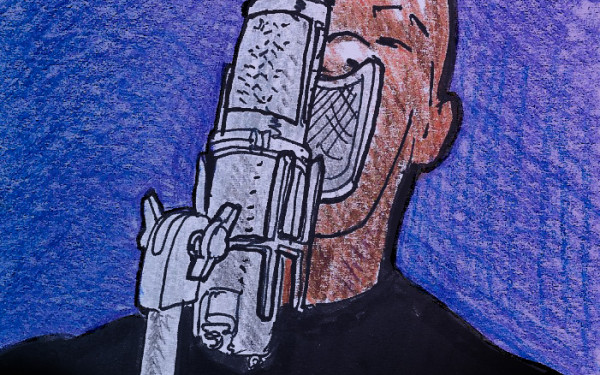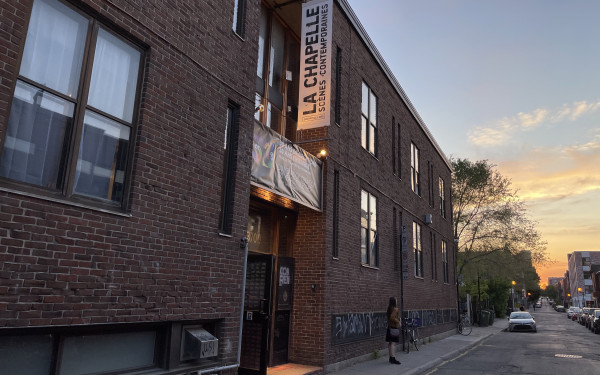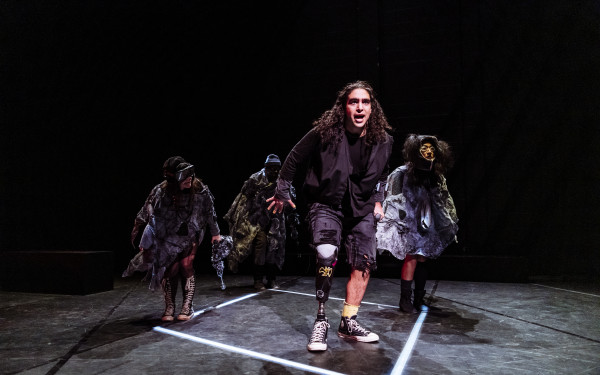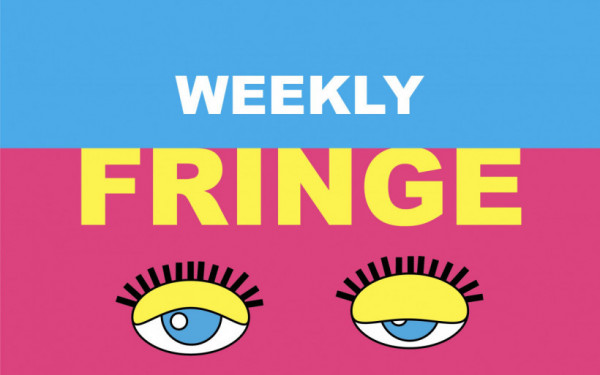The Rose Festival Celebrates Self-Love and the Queer Community
The Third Edition Found Its Groove at the Playwrights’ Workshop Montreal
“All of us who grapple with not being seen, or deal with intersectionality around our queerness—it felt like we had voices this year, and we were seen,” said Corrina Hodgson, co-founder of the Rose festival.
Under the theme of self-love, the third edition of the festival dedicated exclusively to queer arts was carried out between May 10 and 12 in the Playwrights’ Workshop Montreal quarters. In a warm and supportive environment, 15 local artists put together a series of performances and art installations.
On Saturday, Alo Azimov stepped in front of the audience sporting yellow heart-shaped sunglasses. The prop comedian-that-never-gets-to-their-props performed a biting, self-aware set that produced genuine laughter.
Azimov explained that their passage at the Rose festival was meaningful to them because they got to feel seen and understood by a queer audience, and they got to be open about things that they usually don’t get to in other spaces.
_900_600_90.jpg)
“I’m grateful to be on showcase with queer performers creating art, and to have space to do comedy and storytelling,” said Azimov, “To have this room for emotion and comedy, and to be able to laugh at those experiences with people—I couldn’t ask for more.”
Opening this year was Jacqueline van de Geer, presenting her installation “Magnify My Bones.” In it she invited the audience to join her in a loose column made of assembled drapes, her dress mixing with the rest of the fabric. There, people could take a look at her aging body and learn the stories behind some of its marks and scars.
“It’s not so much like getting older as it’s seeing my body as a continuation of memories,” said van de Geer. “See that every mark, every scar has a story of its own, and sometimes a life lesson.”
Van de Geer recalled an accident that happened when she “refused to say ‘no I can’t help you carry that heavy statue.’”
“Then it fell on my finger,” continued van de Geer, “and now I have a split nail forever. That reminds me that sometimes, you want to be helpful, but you can’t do things that are beyond your power.”
“To have this room for emotion and comedy, and to be able to laugh at those experiences with people—I couldn’t ask for more.” — Alo Azimov
“Magnify My Bones” was participatory—the audience was invited to join the artist under her installation to share their scars and stories, and reflect upon them.
“I ask people if they’re comfortable with everything, because there is nudity involved and because we’re so close. But at the same time, [the installation] offers this very nice intensity,” said van de Geer.
Between their large selection of new and returning performers, the festival also had its first art market and open mic. This is another way to include more local artists in their lineup, but also a way to offer affordable art to the attendees.
Star Nouveau was one of the artists who sold their art at what was their first Rose festival. The self-taught artist’s work is inspired by 1970s pop imagery and Japanese anime. They work in many mediums, from print to jewellery.
The open mic also serves the purpose of inclusivity. Hosted by festival co-producer Anton May, it’s a way to let people perform even if they don’t have a full show ready.
“They get to have their voices heard and represented in the community,” said Hodgson, “And hopefully [they can] build toward being performers in our main shows for the next editions.”
_900_600_90.jpg)
The festival found its groove in its third year—Hodgson said she was touched by everything she saw on stage. She added that she was moved at how the artists and hosts spoke from their hearts and took the stage seriously.
“We witnessed two young people ecstatically bond over being demisexual in the lobby,” said Hodgson. “And then myself and one of the actors bonded over chronic pain, and being disabled, and all the stupid stuff that happens because of that.”
Hodgson believes that there is still room for the festival to grow. She wants the festival to be bigger next year, and strives to bring the queer arts festival to the West Island.
“We received so much positive feedback. I had somebody tell me that they usually never feel queer enough for traditionally queer spaces and that they felt at home at the Rose festival, and that they didn’t want to leave at the end of the night […] I was so moved by that.”

_900_600_90.jpg)




